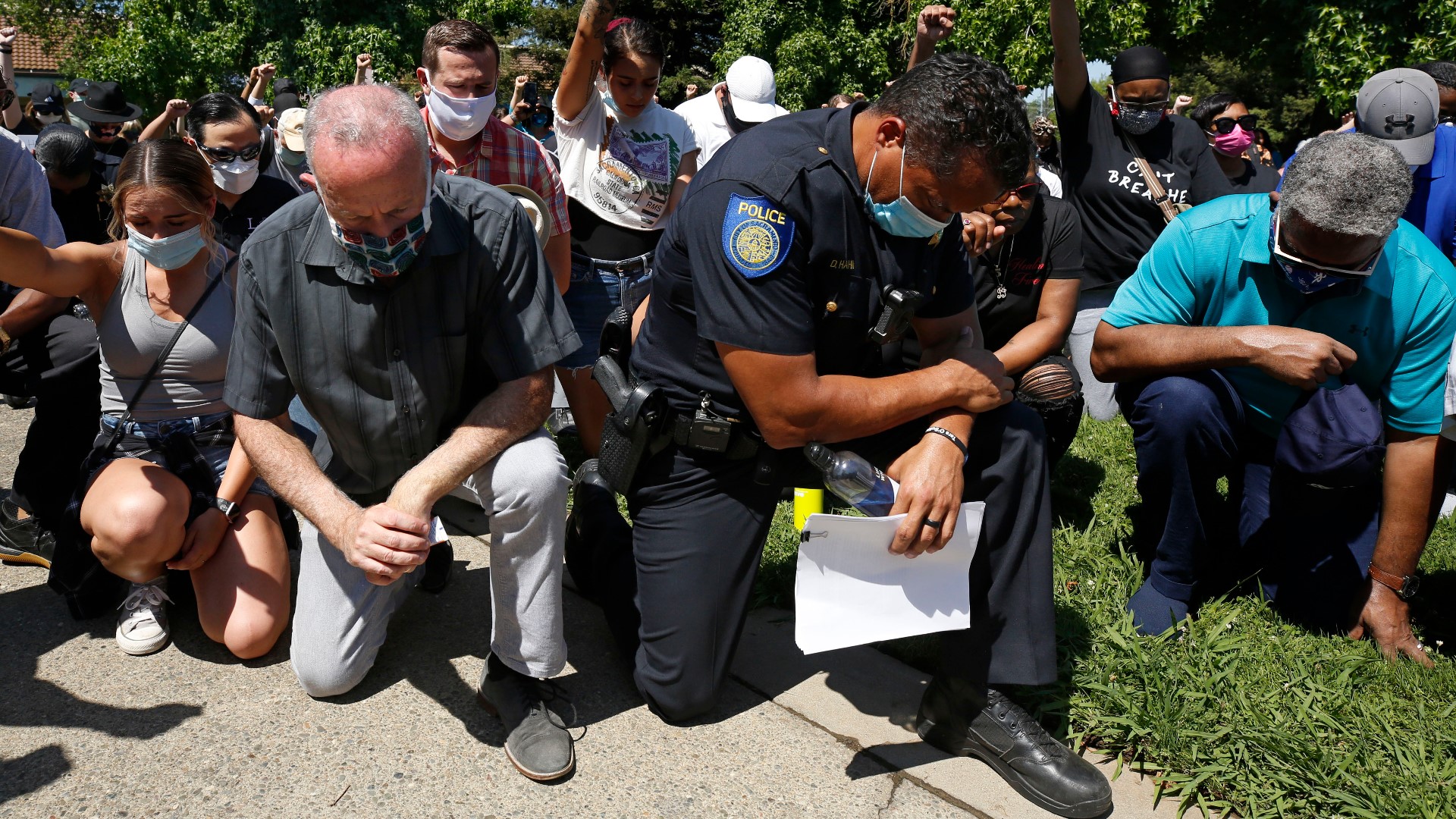SACRAMENTO, Calif. — Conversations on police brutality and reform continue as some cities cut funding to their police departments and officers are charged for killing unarmed Black men.
Dr. Ernest Uwazie, chair of Sacramento State's criminal justice department, said meaningful reform requires community partnership, funding and data.
This interview has been edited for brevity and clarity.
ABC10: Historically, what has the relationship been like between law enforcement and minority communities?
Professor Ernest Uwazie: It has always been contentious ...especially with regards to African Americans, Hispanics and other minorities. There have been some improvements over time, especially when certain reforms have been introduced. Unfortunately, when an incident like what we’re dealing with now with racial injustice occurs, it tends to cause a setback for the whole community not just minorities. It calls upon all of us to reengage and see where we need to do better.
What could police reforms or alternatives to the way we traditionally think about policing look like?
That would require three main things.
One, a true partnership between the community and the police. If you ask any police officer, they will probably tell you they cannot do this alone. The reality is that good policing comes from good community participation and involvement. Going back and really having some confidence building measures that kind of rekindle and maybe scale up that partnership between the police and the community would be very helpful. Through that partnership the police can say maybe we help you set up a neighborhood watch program that can do X,Y or Z and this is the type of support we can provide you with in terms of training and back up. But we expect you to do X, Y or Z, and maybe we only come in if we really must come in but most often, we expect you to handle the issues that come up in that community.
It would also require the budgetary support and this is where the political leadership comes in. How much of the budget that is now allocated to policing can be allocated towards providing the capacity of that neighborhood to handle some of these issues?
Lastly, it will require us to pay attention to, document, assess, evaluate and monitor what is going on so that we can detect the gaps, reinforce the strengths, fill in any gaps that may exists and be able to replicate that over time.
How can police brutality be eradicated?
The system of policing is a very powerful position and to the extent that you do not have the commiserate checks and balances, the likelihood of abuse, even if it’s subconscious, is likely to arise. As we do our best to put together policies and practices and bring in the right personnel provided with the training, monitoring and support to do good policing... the question becomes: How do we hold that person accountable, make the corrections that we need to make, and learn from that to prevent that from occurring or at least minimize the likelihood of its occurrence?
As a criminal justice scholar, what is something you think is missing from the conversation around policing?
I would like some sort of program in the area of conflict resolution, mainly mediation. Not a lot of police departments around the country have that. If you look at citizen complaints against the police and the outcome, most often they will show that whatever the police department did was justifiable by law and training. It’s not unusual, even when the police officers conduct is found to be justifiable, for that family to say maybe it’s something the police department should change. Even when the officer’s conduct is found to be justified, doesn’t necessarily relive the family’s pain, grief or the need for healing on behalf of the victim. Even in those few cases where an officer is punished, prosecuted, convicted and sentenced, that may not relieve the pain. This concept of restorative justice… is an integral part of policing... We have to figure out how to introduce mediation in as many of those cases as possible.
I know the focus is on the police… however we should not lose sight of the need to have significant discussions of racial justice and racism or the need for reform with regards to the sheriff, prosecutor, judge, jails and probation (within Sacramento County). They tend to have a contributable trait and path in terms of the overall experience... [and] our appreciation or lack thereof of the justice system.
RELATED:
- California police chiefs call for weeding out bad cops
- Here's the difference between Democrat and GOP police reform proposals
- Q&A: Sacramento police chief talks defunding police, mayor's proposal, George Floyd protests and more
- Q&A: Sacramento's new Director of Public Safety Accountability talks police reform
FOR NEWS IN YOUR COMMUNITY, DOWNLOAD OUR APP:
►Stay In the Know! Sign up now for the Daily Blend Newsletter



